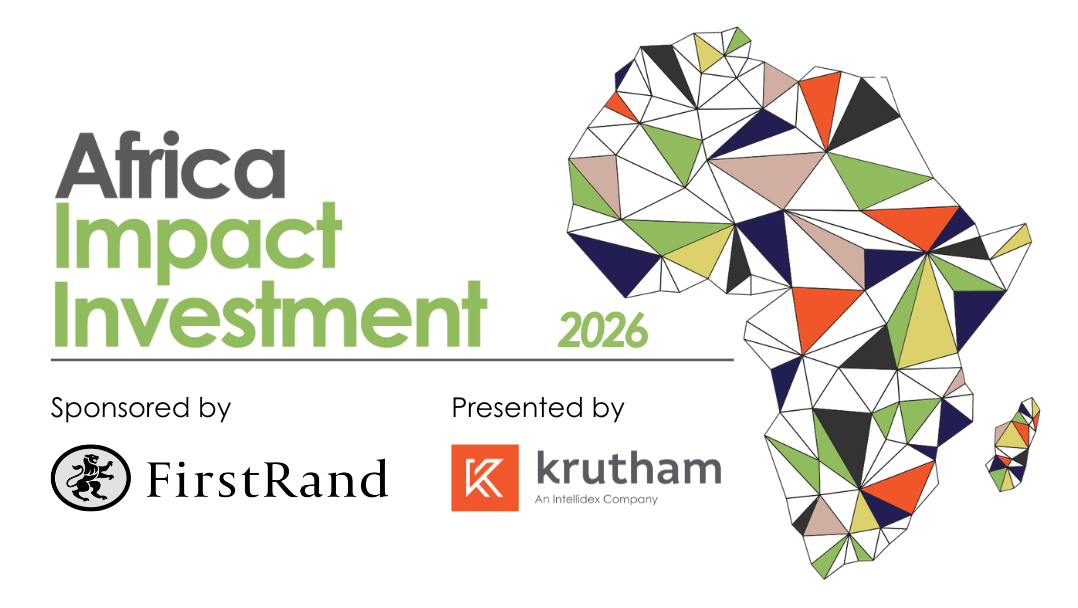These awards exist to provide recognition to any nominees that were either not shortlisted or did not win in their respective categories, but that are contributing materially to the development of the impact investing market through their impact investing intervention. Such awards can be made by the judging panel at its discretion.
Sahel Capital
About
The Social Enterprise Fund for Agriculture in Africa (SEFAA) is an impact fund that invests in social agricultural enterprises (SAEs) that contribute to enhancing the business ecosystem or income opportunities for smallholder farmers (SHFs) with the ultimate aim of contributing to the alleviation of poverty in sub-Saharan Africa (SSA).
SEFAA’s investment strategy is designed to deliver hands-on engagement, flexibility and local expertise in a cost-effective way to source and finance high-impact agrienterprises while achieving the 2% net internal rate of return set out in the fund thesis.
The fund navigates the challenges of African markets, operating in broadly underdeveloped ecosystems, to unlock the potential of the continent’s agricultural sector.
Sahel Capital originally entered for the Fund of the Year Award category and following the initial judges’ scoring, the committee had an extensive debate on who should be crowned winner in this category. While Sahel’s Social Enterprise Fund for Agriculture in Africa (SEFAA) was ultimately placed as first runner up in the impact fund category, the committee proposed awarding a judges’ award to the fund for its innovative approach to providing funding for smallholder farmers (SHFs).
Key considerations for granting this award
included the following:
- From a big-picture perspective, the fund shows promise in addressing issues related to the food systems transformation problem due to its focus on SHFs.
- Sahel has a unique approach in the agriculture sector from an impact perspective.
- Provides a strong demonstration case for innovative approaches to solving social and environmental problems.
- Impact is embedded in its investment decision-making process.
The problem
The Social Enterprise Fund for Agriculture in Africa (SEFAA) is an impact fund that invests in social agricultural enterprises (SAEs) that contribute to enhancing the business ecosystem or income opportunities for smallholder farmers (SHFs) with the ultimate aim of contributing to the alleviation of poverty in sub-Saharan Africa (SSA).
SEFAA’s investment strategy is designed to deliver hands-on engagement, flexibility and local expertise in a cost-effective way to source and finance high-impact agrienterprises while achieving the 2% net IRR return set out in the fund thesis.
The fund navigates the challenges of African markets, operating in broadly under developed ecosystems, to unlock the potential of the continent’s agricultural sector.
What makes SEFAA unique?
The SAEs that SEFAA targets struggle to raise capital from traditional financiers due to insufficient collateral, lack of credit history, and small capital requirements.
Sahel uses creative mechanisms to identify collateral, adopting non-traditional collateral such as receivables, inventory, personal and corporate guarantees. It also takes risks on first- time borrowers with no credit history by lending against strong cashflows and carrying out due diligence on the borrowers to confirm the borrowers’ willingness to pay.
SEFAA is an Article 9 (in terms of the European Union’s Sustainable Finance Disclosure Regulation) financial product and therefore invests mostly in sustainable ventures, with the rest of its portfolio required to avoid harming sustainable objectives. Further, all companies must follow good governance practices.
SEFAA targets SMEs that can scale their business model to have a positive impact on smallholder farmers at scale in target countries while also achieving financial sustainability in the medium to long term.
The fund invests catalytic equity, mezzanine and debt financing to portfolio companies with high potential to benefit the entire agricultural ecosystem, likely through intermediary roles.
The fund targets 2% capital return while generating revenue through loan interest, fees, and placed capital interest. Sahel’s risk model aims for a 3-4% return to cover costs and offer a competitive market return.
| Innovative funding approach | Case study |
| Deploy both debt and equity
Debt can be short-term (six months – one year working capital loans and trade finance) or long-term (3-7 years for Capex). |
Complete Farmer – SEFAA’s role in helping the company complete a pre-series A raise
Through technology, Complete Farmer streamlines the aggregation of grains, vets international buyers, and carries out demand-supply matchmaking. SEFAA’s debt investment helped galvanise equity investors to participate in the company’s pre-Series A round. The investment helped the company kickstart a substantial grain aggregation process, which enabled it to show significant momentum that piqued the interest of equity investors. The Sahel team engaged the investor consortium throughout the fundraising process, playing a pivotal role in securing equity investment for the company. |
| Significant flexibility around collateral requirements
Flexible collateral requirements have played a critical role in helping agribusiness SMEs access capital. SEFAA uses inventory, receivables, personal guarantees, and other non-traditional assets as collateral for its investments, understanding the lack of traditional assets such as land and buildings to the borrowers. |
Winich Farm – SEFAA’s role in unlocking local currency finance for Agtech company while mitigating FX risk through an innovative structuring
Given Nigeria’s exchange rate instability and illiquidity, deploying USD-denominated debt to domestic SMEs that do not have USD receivables is nearly impossible. SEFAA’s investment, structured as a USD cash collateral, enabled the company to secure competitively priced local currency funding from a local bank – while also generating an attractive return for SEFAA. |
|
Blended capital SEFAA plays a catalytic role in unlocking commercial financing for SMEs because of its blended capital structure. SEFAA has a technical assistance (TA) and a foreign exchange (FX) hedging facility which enables it to de-risk lending to these agribusinesses. |
Rogathe – SEFAA’s role in providing CAPEX and strengthening supply chain using blended capital
SEFAA injected a strategic blend of capital into Rogathe – a dairy processor in Tanzania. SEFAA deployed short-term working capital to enable milk procurement from smallholder dairy farmers and long- term CAPEX for acquiring new milk transport trucks. SEFAA also provided technical assistance that will help digitise Rogathe’s farmer engagement, strengthening its supply chain. |
Impact
The primary objective of SEFAA is to support sustainable livelihoods by catalysing economic activities of SAEs, and increasing the productivity of SHFs.
Aligned to its commitment to achieve maximum impact, Sahel has identified clear, measurable impact metrics through which the success of the intervention can be measured.
To this end, Sahel’s team engage regularly with investee companies to keep track of performance against set goals and offer technical assistance to companies as required to ensure they meet their impact potential.
In 2023, the fund outperformed on its impact targets, creating hundreds of jobs and supporting thousands of SHFs, positively impacting tens of thousands of community members.
Addressing challenges
Investing in the agriculture sector means
that almost every investment has high impact potential. Most companies in the sector that have good financial returns also positively affect their communities. Balancing financial returns with impact objectives for Sahel usually involves helping the companies articulate the impact that they already make and strengthen their ability to do more without affecting their financial performance.
However, a major challenge in supporting high-impact companies is the lack of collateral. This affects the fund’s expected credit loss, creating an unrealised book loss. The fund must decide on how best to reduce credit loss while also investing in these high-impact companies.
In addition to balancing impact and financial return objectives, Sahel faces numerous financial risks, including:
- Credit risk from the inability of the companies to fulfil their obligations to the fund. Sahel conducts thorough due diligence on the borrower’s ability to pay, cash flow and willingness to pay to mitigate this risk.
- FX risk when investing in local currency. The fund leverages its FX sidecar to mitigate FX risk by hedging local currency loans.
- Insufficient collateral cover in case of default. Sahel aims for a decent collateral cover using other non-conventional collateral covers such as inventory (with a collateral manager on ground), charge on receivables, etc. This helps to mitigate the impact of a lack of sufficient collateral cover.
In addition, SEFAA has had to mitigate against risks associated with impact reporting, impact alignment and potential exploitation of SHFs. It does so through the development of rigorous due diligence processes and robust engagement with key stakeholders.
Click here to download the case study
Share
This research report was issued by Krutham South Africa Pty Ltd.
Krutham aims to deliver impartial and objective assessments of securities, companies or other subjects. This document is issued for information purposes only and is not an offer to purchase or sell investments or related financial instruments. Individuals should undertake their own analysis and/or seek professional advice based on their specific needs before purchasing or selling investments.
The information contained in this report is based on sources that Krutham believes to be reliable, but Krutham makes no representations or warranties regarding the completeness, accuracy or reliability of any information, facts, estimates, forecasts or opinions contained in this document. The information and opinions could change at any time without prior notice. Krutham is under no obligation to inform any recipient of this document of any such changes.
No part of this report should be considered as a credit rating or ratings product, nor as ratings advice.
Krutham does not provide ratings on any sovereign or corporate entity for any client.
Krutham, its directors, officers, staff, agents or associates shall have no liability for any loss or damage of any nature arising from the use of this document.
Disclosure
The opinions or recommendations contained in this report represent the true views of the analyst(s) responsible for preparing the report. The analyst’s remuneration is not affected by the opinions or recommendations contained in this report, although his/her remuneration may be affected by the overall quality of their research, feedback from clients and the financial performance of Krutham group entities.
Krutham staff may hold positions in financial instruments or derivatives thereof which are discussed in this document. Trades by staff are subject to Krutham’s code of conduct which can be obtained by emailing mail@krutham.com.
Krutham may have, or be seeking to have, a consulting or other professional relationship with the companies, sovereigns or individuals mentioned in this report. A copy of Krutham’s conflicts of interest policy is available on request by emailing mail@krutham.com. Relevant specific conflicts of interest will be listed here if they exist.
- Krutham provides independent advice and independent research to a wide range of investors and financial institutions on Eskom, Denel, Transnet, Land Bank and SAA. Krutham’s interactions with all clients on Eskom, Denel, Transnet, Land Bank and SAA may include business confidential information but does not include MNPI and so does not provide a conflict. Krutham does not ‘act’ or ‘advocate’ for or ‘represent’ any of these clients. Krutham has regular interactions with government, Eskom, Denel, Transnet, Land Bank, SAA and other related entities connected with the SOE situation but does not provide paid consulting services or paid advice to any of these entities. These interactions are governed by Krutham’s own conflicts of interest policy as well as secrecy rules of the respective institutions or state-owned companies.
- Krutham provides a range of services into ‘organised business’ groupings in South Africa, which includes independent bespoke research and advice. Krutham is compensated for these services. Krutham does not ‘act for’ or ‘advocate’ for or ‘represent’ any of these clients.
- Krutham is currently involved in policy design work on a number of government priorities.
Copyright © 2023. All rights reserved. This document is copyrighted to Krutham South Africa Pty Ltd.
This report is only intended for the direct recipient of this report from a Krutham group company employee and may not be distributed in any form without prior permission. Prior written permission must be obtained before using the content of this report in other forms including for media, commercial or non-commercial benefit.

